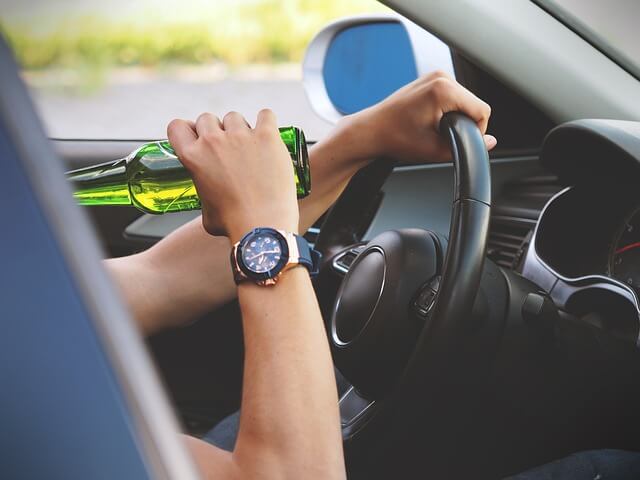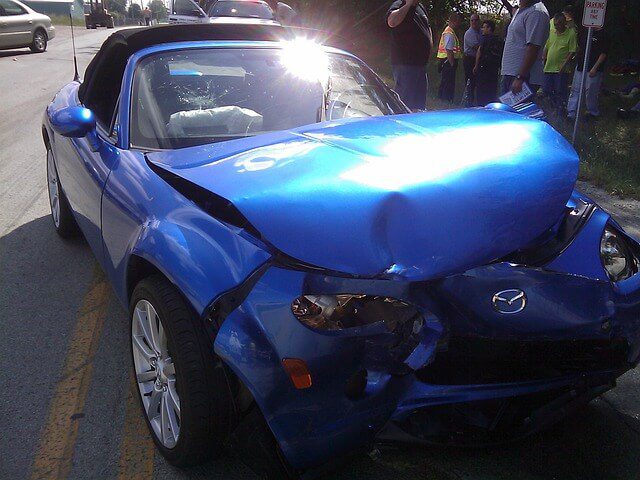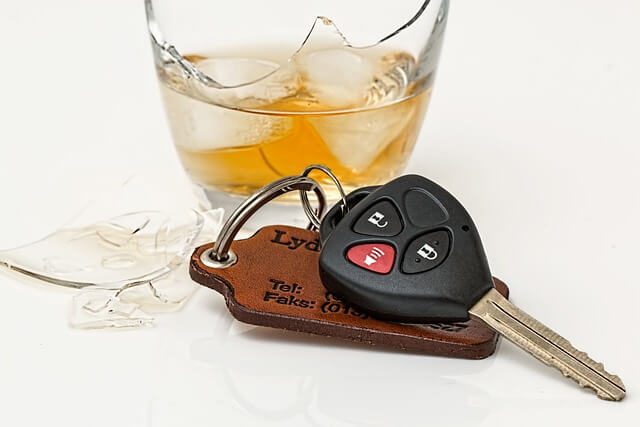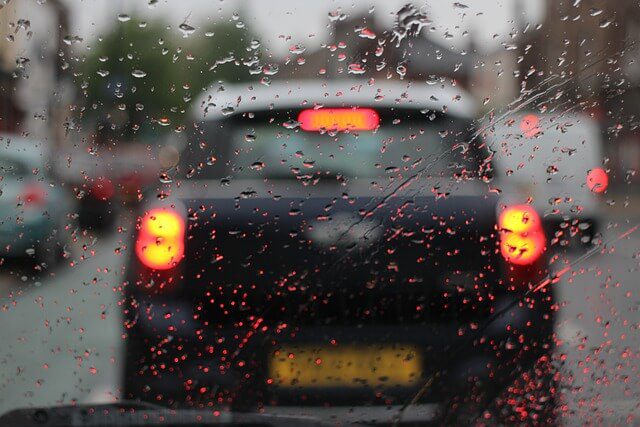
How to Save Fuel While Driving: A Useful Guide
28 November 2023
Winter Driving Tips and Tricks
18 January 2024Driving while intoxicated is a serious problem that has a significant impact on individuals and the communities they belong to. Drink driving is a significant problem in the UK, with wide-ranging repercussions.
It's especially prevalent over the Christmas and New year period each year which people taking unecessary risks on the roads. So in this detailed guide, we will explore the different aspects of drink driving, including legal consequences and preventive measures, offering valuable insights for drivers and the community. Please stay safe this Christmas - don't take the risk of drinking and driving!!
In this article
ShowHide- Definition of Drink Driving
- Drink Driving UK Laws
- Impact of Drink Driving on insurance
- Statistics on Drink Driving UK
- Effects of Drink Driving on Safety & Well-being
- Safer alternatives to drink driving in the UK
- Frequently Asked Questions
- What is the legal blood alcohol limit for drivers in the UK?
- What methods are used to detect drink driving offences in the UK?
- What consequences can someone face for their first drink driving offence?
- Do drink driving convictions have an impact on future job prospects?
- Are there any programmes available to help individuals who have been convicted of drink driving?
- What are some ways that communities can get involved in preventing drink driving incidents?
- Summary

Statistics on Drink Driving UK
New figures from the Department for Transport (DfT) suggest that there were approximately 260 deaths on Britain's roads in 2021 involving motorists who were over the drink-drive limit. This represents an 18% year-on-year increase and is the highest number of drink-driving related deaths in the UK since 2009.
In the previous year, there was a two percentage point increase in the number of road deaths caused by drunk drivers, accounting for 17% of all fatalities.
According to the DfT drink-drive data, the number of people injured in drink drive accidents has increased by 4%, reaching a total of 6,740.
Despite this, last year's data revealed a trend: the Police in England and Wales conducted 7% fewer breathalyser tests on drivers in 2021, hitting an all-time low.
In 2021, a total of 224,162 motorists underwent roadside testing, marking a continued decline in numbers since the peak of 709,512 breath tests conducted in 2009. A significant decrease of 68%.
However, In May of this year, the Department for Transport released figures indicating a concerning rise in the number of total deaths on UK roads. The data revealed that the overall number of fatalities had increased from 1,558 in 2021 to 1,695 in 2022, representing a significant 8.7% increase.
The number of drink driving incidents in the UK has been a significant concern. Police conduct regular checks, especially during festive seasons (Easter and Christmas) and holidays, in order to curb drunk driving.
Efforts have been made to reduce drink driving incidents, and there has been a decline in recent years. Public awareness campaigns, stricter penalties, and increased law enforcement have contributed to this trend.
Demographics Affected
Age Groups
In the past, it has been observed that there is a higher likelihood of drink driving incidents among young drivers aged 17-24 in the UK. Nevertheless, the data can differ, and efforts have been made to tackle this problem across all age ranges.
Gender
Historically, men have been more commonly associated with drink driving incidents than women in the UK. Nevertheless, the disparity has been shrinking, and initiatives are being implemented to tackle this problem among all genders.

Effects of Drink Driving on Safety & Well-being
Drink driving is a major threat to road safety in the UK, carrying a multitude of risks that can result in severe accidents and injuries. Driving under the influence of alcohol can have serious and potentially life-threatening consequences. Therefore, It is important to be aware of the dangers involved:-
Impaired Reaction Times
Alcohol has the ability to slow down the brain's function by acting as a depressant on the central nervous system, resulting in impaired reaction times. As a result, drivers may struggle to react promptly to unforeseen circumstances while on the road, such as abrupt halts or obstacles, due to the delay in their reaction times.
Impaired Coordination and Motor Skills
Alcohol has a negative impact on motor skills and coordination, making it difficult for drivers to accurately control their vehicles. Furthermore, having trouble with coordination can make it challenging to steer, brake, or stay in the correct lane.
Questionable Judgement and Decision-Making
Alcohol consumption has the potential to hinder a driver's capacity to make rational judgements and decisions. Therrefore, engaging in such behaviours can be quite dangerous, including trying to pass other vehicles in unsafe conditions, miscalculating distances, or disregarding traffic signals.
Reduced Concentration and Attention
Driving demands unwavering attention and focus. However, drinking alcohol can make it harder to focus, which can cause you to become easily distracted and more likely to miss important things on the road, like people walking or biking, or other cars.
Higher Probability of Accidents
The combination of impaired cognitive function, reduced coordination, and poor decision-making greatly increases the risk of an accident occurring. As a result, driving under the influence is a significant cause of car accidents, leading to harm or even death for those involved, including drivers, passengers, and pedestrians.
Severity of Injuries
When accidents happen, the injuries tend to be more severe if alcohol is involved. Decreased reflexes and diminished muscle control can lead to more serious accidents and injuries.
Social and Emotional Impact
Drink driving incidents can cause long-lasting emotional and social effects, impacting not just the individuals involved, but also their families and communities in the UK. The impact of accidents and the potential loss of life or livelihood can have a deep emotional toll.
In order to improve road safety, it is of utmost importance for people to recognise the risks associated with driving under the influence of alcohol and to make responsible decisions. Education, enforcement of laws, and public awareness campaigns all have crucial roles in decreasing the occurrence of drink driving and the dangers it poses on UK roads.

Safer alternatives to drink driving in the UK
Operating a vehicle while under the influence of alcohol is against the law and presents substantial dangers to the driver, passengers, and other individuals on the road. As a result, please consider these safer alternatives:-
Designated Driver
Firstly, please consider nominating a responsible individual who will commit to staying sober and ensuring the safe transportation of everyone. Share the responsibility among friends so that everyone gets a chance to take a turn.
Public Transport
Opt for public transport options like buses, trains, or trams. It is important to plan your journey ahead of time and stay informed about the schedule to ensure a safe trip back home.
Taxi or Private Hire Vehicle
Get a taxi or private hire vehicle to conveniently pick you up and transport you to your destination. Make sure to have the contact information of local taxi services saved in your phone.
Rideshare Services
Take advantage of rideshare services such as Uber or Lyft for a secure and hassle-free journey back home. Ensure that you have the application installed on your mobile device and are familiar with its functionality.
Walking
If the distance is not too far and it's safe, you might want to consider walking home. It is important to remain on well-lit paths and stay vigilant of your surroundings.
Stay Overnight
Consider staying overnight if you find yourself at a friend's house or an event, rather than trying to travel home while under the influence. It is advisable to plan ahead if necessary.
Arrange Accommodation
Reserve a hotel nearby or explore other options for lodging if you are away from home and unable to drive.
Mobile Apps for Sober Rides
Certain mobile apps are dedicated to linking users with drivers who are sober. Discover the various options available in your vicinity and make use of these apps to ensure a secure ride.
Community Programmes
Finally, certain communities offer programmes that provide complimentary or reduced-cost transportation for individuals who have consumed alcohol. Explore local programmes that encourage sustainable transportation.
Always keep in mind the importance of thinking ahead and making responsible decisions to guarantee the well-being of yourself and others while driving. Remember - Driving a vehicle after having a drink is not only against the law in the UK, but also puts lives at risk. So ensuring the well-being of yourself and those in your vicinity should always be your top priority.
Frequently Asked Questions
What is the legal blood alcohol limit for drivers in the UK?
In the UK, the legal blood alcohol limit for drivers is set at 80 milligrammes of alcohol per 100 millilitres of blood.
What methods are used to detect drink driving offences in the UK?
Drink driving offences are commonly identified through roadside breath tests, and in certain situations, through blood or urine tests.
What consequences can someone face for their first drink driving offence?
For a first-time drink driving offence in the UK, individuals may face penalties such as fines, driving bans, and in some cases, imprisonment. The severity of the case will determine the specific consequences.
Do drink driving convictions have an impact on future job prospects?
Indeed, a drink driving conviction can significantly impact future employment prospects, particularly in occupations that involve driving or entail a great deal of responsibility.
Are there any programmes available to help individuals who have been convicted of drink driving?
Indeed, there are rehabilitation programmes available to assist individuals who have been convicted of drink driving in addressing their behaviour and making positive changes.
What are some ways that communities can get involved in preventing drink driving incidents?
Communities can play an active role in preventing drink driving in the UK by organising awareness campaigns, supporting local initiatives, and promoting a culture of responsible alcohol consumption.
Summary
In summary, tackling the problem of drink driving in the UK necessitates a united front. Through a comprehensive understanding of the legal aspects, potential consequences, and proactive engagement in preventive actions, individuals and communities can play a crucial role in promoting road safety. It is important to prioritise safety and the welfare of ourselves and others by driving responsibly.
Get in touch for professional Car Body Repairs
We hope you enjoyed reading our article and found it useful. If you're looking for a professional car body or alloy wheel repairs service following a road traffic accident, then bring your vehicle to our car body shop in Radcliffe near Manchester and our professional technicians will take care of it for you.
In addition, for your convenience, we offer a fully mobile service and can come to you. We cover the whole of Greater Manchester, Lancashire, Cheshire, Merseyside and Yorkshire.
If you’d like to get a price for our professional car body repairs service, then please get in touch with us now on 0161 667 0919 or by filling out our quick quote form to get a free, no-obligation quotation.
We have lots of 5 star reviews on Google from happy customers, so please feel free to check out our reviews.
Or contact our team to arrange a time to bring your vehicle in for an estimate. We look forward to restoring your vehicle and getting you back on the roads!



